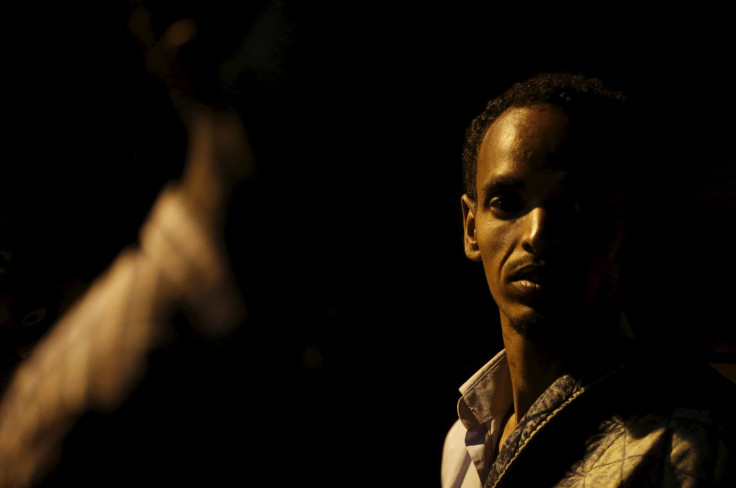Europe Migrant Crisis: Milan Protests See Hundreds Clash With Police

Hundreds of migrants clashed with police and blocked a major road in the Italian city of Milan on Monday, in protest against alleged poor living conditions and long waiting periods for obtaining work authorization.
Riot police wielding batons moved the group back down the main road and into the holding center where new migrants are held in tents in a Red Cross compound. Occupants claim that these tents are overcrowded and inhumane.
Over 100,000 migrants have reached Italy this year by sea, mostly fleeing violence and chaos in Africa and the Middle East. While many continue moving further into northern Europe, as many as 85,000 remain housed in Italian shelters seeking temporary work documents. The massive influx of refugees has created political backlash.
"What the hell! They are guests here who we are paying for and they are busting our balls," Matteo Salvini, leader of the right-wing opposition Northern League party, wrote on his Facebook page after the protest, according to Reuters. "I would put them on the first plane and send them all home."
Migrants often make a perilous journey across the Mediterranean to reach Europe. Last year, around 600 refugees were believed to have died in the ocean. So far this year, that number has soared to almost 1,900, of which 1,600 alone have died since June.
The European Union plans to relocate 32,000 migrants over the next two years, easing the burden on Italy and Greece, where the majority has landed. The U.K. has opted out of the plan and several Eastern European nations have criticized it. Their stance reportedly angered Italian Prime Minister Matteo Renzi who described the plan as “modest.”
European Commission President Jean-Claude Juncker also called the effort a “modest ambition” and downplayed objections to the plan's fundamental methodology.
The United Nations warned earlier this month that 107,500 migrants entered the EU in July, almost triple the number recorded that month last year.
“This is an emergency situation for Europe that requires all EU member states to step in to support the national authorities who are taking on a massive number of migrants at its borders,” border control agency Frontex Director Fabrice Leggeri said last week.
© Copyright IBTimes 2025. All rights reserved.




















